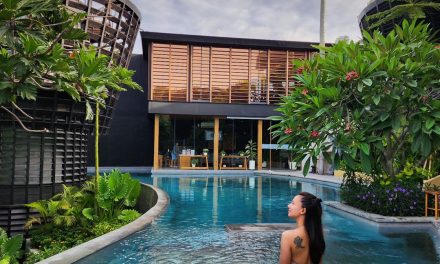The caretakers of Bali’s iconic UNESCO Jatiluwih Rice Terraces have raised concerns about the very real threats facing these traditional agricultural landscapes.

The Impact of Commercial Development
The swift transformation of agricultural land into tourist hotspots poses significant challenges not just to the stunning landscapes but to Balinese communities themselves. When I first visited Jatiluwih, I was captivated by its lush greenery and patchwork of rice fields. However, I also learned from locals that the traditional way of life is at serious risk.
Leaders from Jatiluwih have expressed frustration as farmers face mounting pressures. With real estate developers knocking on their doors, many farmers are caught in a dilemma: should they sell their land or cling to their cultural heritage? Rising farming costs and diminishing crop values add to this struggle.
Local Leaders Take Action
Ketut Purna, the operations manager at Jatiluwih Rice Terraces, voiced his concerns saying, “What we are afraid of is that there will be buildings in the middle of the rice fields.”
To combat this, the community enacted the Jatiluwih Village Regulation (Perdes), ensuring the conservation of their natural surroundings and preserving the historical significance of the area.
Thanks to UNESCO World Heritage Status and community support, Purna and his team remain hopeful that responsible tourism development can sustain their farming lifestyle.
A Neighboring Example: Tegalalang
A stark comparison can be found at Tegalalang Rice Terraces, where the effects of converting rice paddies into commercial venues are already evident. It’s heartbreaking to see resorts sprouting amidst ancient fields. For someone who has enjoyed the tranquility of these terraces, it’s a troubling sight.
The Climate Crisis and Its Effects
Adding to the woes of the local farmers are the challenges posed by climate change. As Purna explained, “The reduction in water sources due to El Niño has severely affected our rice production.”
Innovative Solutions for Sustainability
Fortunately, local initiatives are underway to ensure that farmers remain committed to their rice fields. An inspiring program has allowed farmers to earn 26% of their net income from visitor entrance fees to the subak area, creating a win-win situation for both farmers and tourists.
Additionally, as part of their efforts to support farmers, every six months, they provide fertilizer subsidies ranging from IDR 400-600 million. However, it’s crucial to bear in mind that excessive fertilizer use can lead to other environmental issues, like soil degradation.
Preserving Cultural Heritage
To honor their traditions, Jatiluwih farmers start each year with a communal planting of heritage red rice in January, ready for harvest in July. This practice reinforces their connection to the land, while the second planting season allows for a variety of quicker-growing rice crops, diversifying their yields.
Celebrating Sustainable Tourism Achievements
Exciting news recently surfaced: Jatiluwih was recognized as one of the winners of the United Nations World Tourism Organization’s 2024 Tourism Village Awards!
“Astungkara, this is an amazing award,” exclaimed Purna. “It represents the commitment of our people and the Tri Hita Karana philosophy guiding our practices.”
Through sustainable practices, the community is not just surviving but thriving, ensuring the preservation of their cultural heritage and environment.
Visit the Jatiluwih Rice Terraces
Jatiluwih Rice Terraces beckon visitors seven days a week. An international ticket will cost you IDR 50,000 for adults and IDR 40,000 for children. Don’t miss the sunrise experience, available from 6 am to 8 am, for IDR 150,000, which includes a cup of red rice tea and Balinese snacks made from locally-grown rice.
By supporting responsible tourism, you can help protect these stunning landscapes and the rich cultural heritage of Bali. Together, we can ensure that future generations can enjoy the beauty of Jatiluwih Rice Terraces while uplifting the community that nurtures them.






